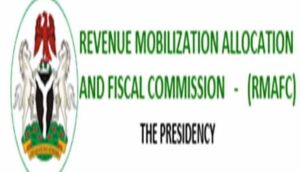
The Revenue Mobilisation, Allocation, and Fiscal Commission (RMAFC) has raised strong objections to President Bola Tinubu’s proposed tax reform bills, currently under review by the National Assembly.
The Commission argues that the bills violate constitutional provisions and pose significant legal, constitutional, and technical challenges.
In a detailed nine-page memorandum obtained by Economic Confidential, RMAFC outlined its concerns and emphasized its constitutional mandate. Signed by RMAFC Chairman Mohammed Bello Shehu, the document underscores Section 162(2) of the 1999 Constitution (as amended), which grants the Commission exclusive authority to determine the revenue-sharing formula among the federal, state, and local governments.
According to Shehu, this mandate ensures that revenue allocation adheres to principles of fairness and justice, further highlighting the importance of RMAFC’s role in maintaining balance and equity in the nation’s fiscal policies. The objections signal a potential clash between the presidency and the Commission as debates around the bills intensify.
“The Constitution designates RMAFC as the final authority on matters of revenue allocation,” the memorandum stated. “As such, no Act of Parliament, including the VAT Act, can infringe upon this constitutional responsibility. Any such attempt would constitute a violation of the Constitution.”
RMAFC maintained that its role as the exclusive arbiter in developing fair revenue allocation formulas must be respected. Any deviation from its constitutional duties, it argued, could undermine the integrity of the Commission and compromise the principles of justice in revenue sharing.
In its submission, RMAFC called for an approach to Value Added Tax (VAT) allocation that accounts for the unique nature of VAT as a consumption tax. It proposed a formula it developed that would ensure equitable distribution among federal, state, and local governments.
RMAFC concluded the memorandum with several recommendations. It urged he federal government to empower the Commission to finalise a VAT allocation formula in line with its constitutional mandate, reinforcing Constitutional Mandates by ensuring that VAT allocation strictly follows RMAFC’s framework, not arbitrary provisions in the VAT Act or the proposed reform bills.
The memo urged dialogue among federal, state, and local governments to secure consensus on the RMAFC’s formula, thereby reducing tensions and ensuring acceptance.
The memo also cautioned legislative or executive measures that undermine RMAFC’s authority and advocated implementing systems like electronic invoicing to tag VAT collections to end-user locations, enhancing transparency and accuracy.
The Commission warned that the proposed tax reform bills threaten national unity and constitutional harmony. By adhering to its constitutional mandate, RMAFC believed it can provide an equitable solution to revenue allocation disputes while safeguarding the principles of fairness and justice.
RMAFC is a constitutionally empowered to ensure the equitable distribution of the country’s financial resources among the three tiers of government: the federal, state, and local governments.
It is mandated that the revenue allocation formula be reviewed to ensure equitable distribution among the three tiers of government to reflect fairness, justice, and equity, taking into account.
It is also empowered to monitor the accruals and disbursements from the Federation Account to ensure compliance with the revenue-sharing formula and advise the federal, state, and local governments on fiscal efficiency and revenue diversification.






